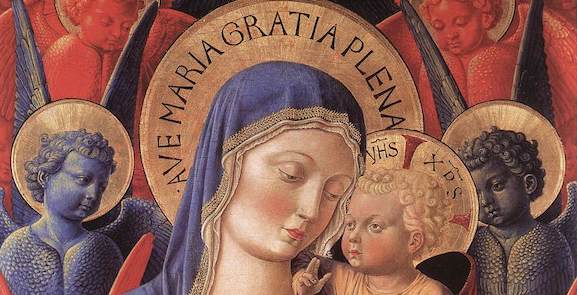
Among the devotions to Our Lady, there is one that is very special: that of praying three Hail Marys every day. But, where did this devotion come from?
Its origin dates back to the 13th century, and is connected to Saint Mechtilde of Hackeborn, a German Benedictine nun, to whom Our Lady revealed a way of lifting up a prayer of thanksgiving to the Holy Trinity for the privileges granted to the Virgin Mary.
Mechtilde was born in 1241 into a noble family. One day, while thinking about her own death, she fervently begged the Mother of God to help her during the last moments of her life.
She heard Our Lady say to her:
“Yes, I will; but I want you, on your part, to pray three Hail Marys to me each day. With the first, you will ask that, just as God the Father raised me up to a throne of glory without equal, making me the most powerful creature in heaven and on earth, so too I may assist you on earth to strengthen you and drive away from you every power of the enemy. With the second Hail Mary, you will ask that, just as the Son of God filled me with wisdom to such an extent that I have more knowledge of the Holy Trinity than all the Saints, so too may I help you during the last moments of your life, filling your soul with the light of faith and of true wisdom, so that the shadows of error and ignorance may not darken it. With the third, you will ask that, just as the Holy Spirit filled me with the sweetness of His love, and has made me so loving that, after God, I am the sweetest and most merciful, so also may I help you at the hour of your death, filling your soul with such gentleness of divine love that all the sorrow and bitterness of your death may be changed for you into delight."
The Virgin Mary promised Saint Mechtilde that whoever would pray three Hail Marys every day would receive her help during life and her special assistance at the moment of death—the Virgin Mary would appear to them with such brightness and beauty that the mere sight of her would bring consolation and the joys of heaven.
Adapted from an article published by Aleteia